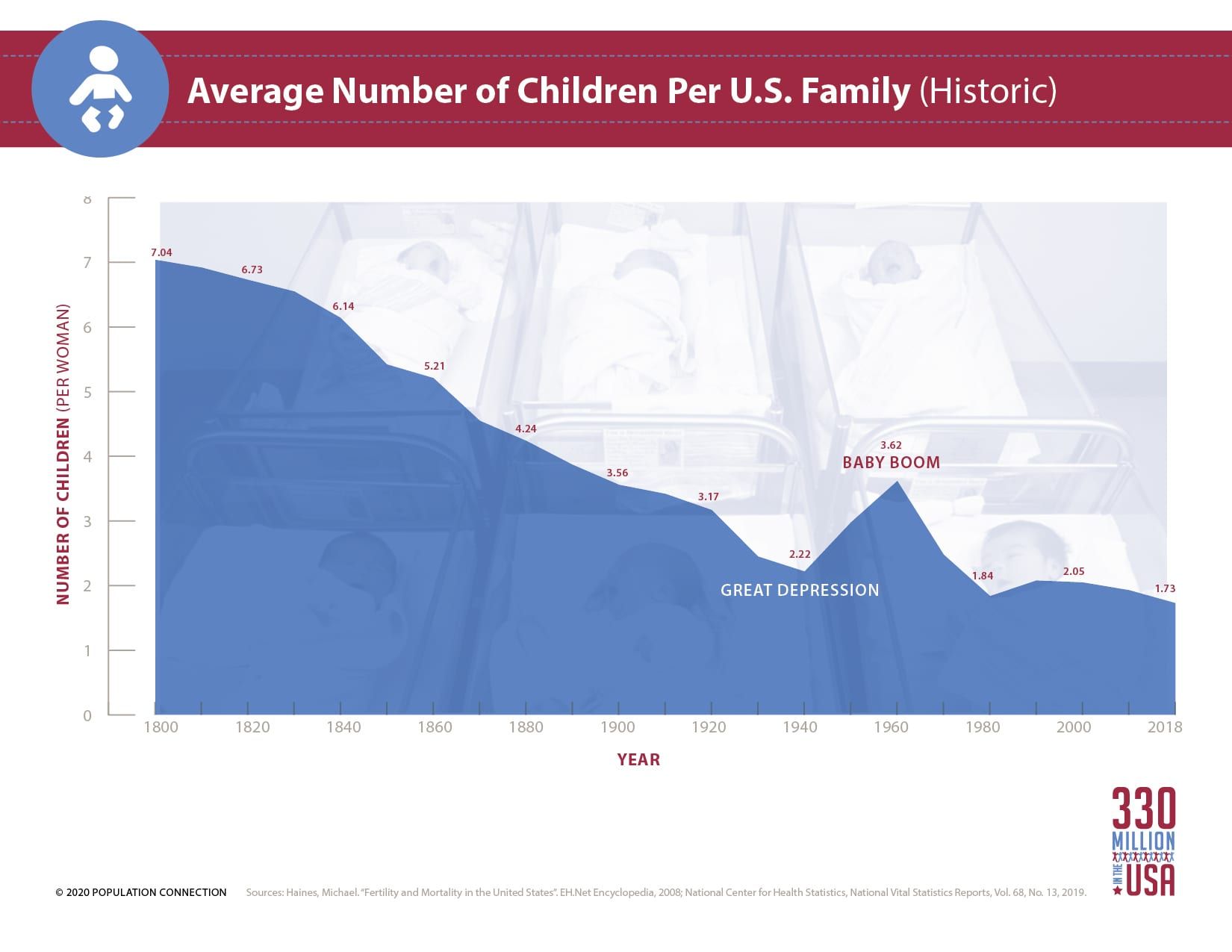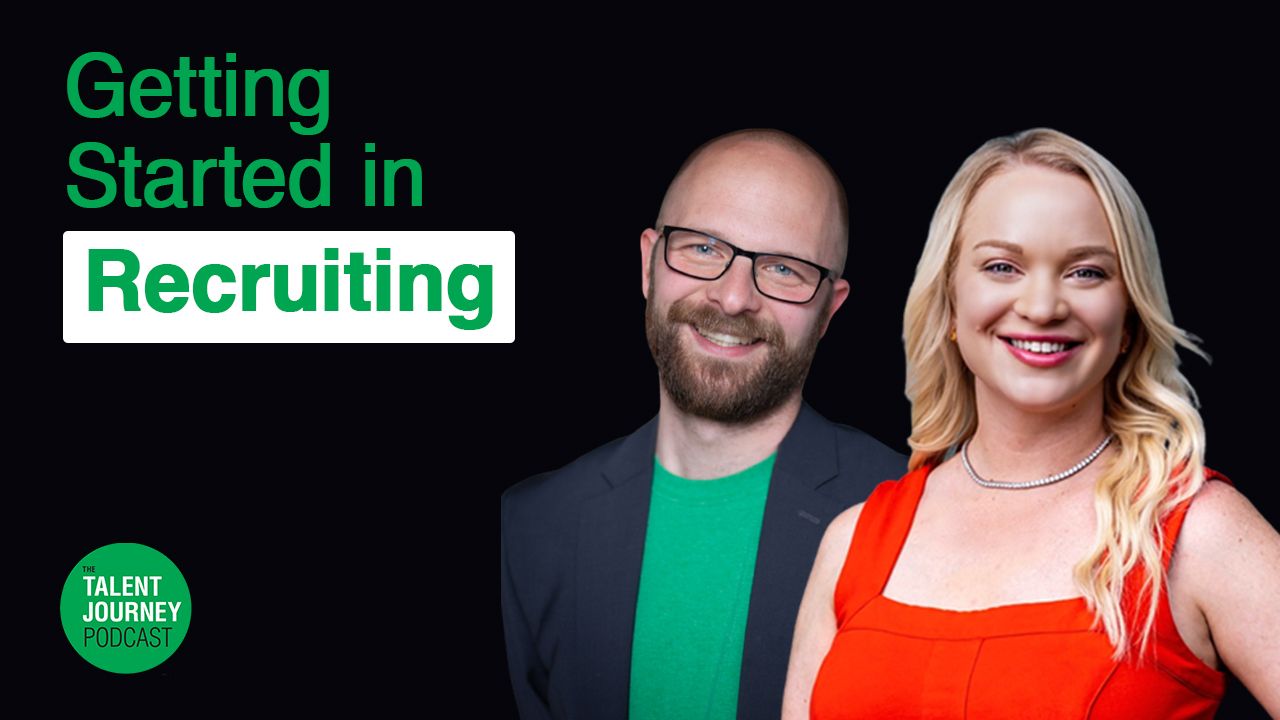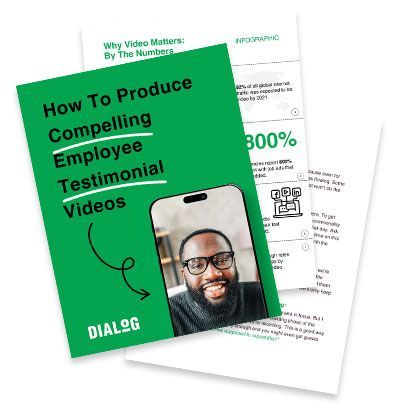Why a recession won’t solve your hiring problems
Falling birth rates are the biggest threat to business growth both now and generations to come.

Contrary to common belief, the United States and the entire Western world aren’t growing by any significant amount. Overpopulation isn’t something we need to worry about, because we’re actually going into population decline. That’s because in the United States, each household needs to produce 2.1 children in order for us to remain at an even population. Yet we haven’t consistently hit these numbers in decades. The biggest reason the US population grew by 0.4% last year? Immigration.
The hiring and retention pinch every employer is feeling isn’t going away, probably ever. It’s created by a multitude of factors all happening at the same time. The pandemic was just a catalyst, speeding up the rate at which these factors occurred. These include an accelerated rate of retirements and women exiting the workforce to be home with the kids because of the cost of daycare. But the biggest reason? We literally aren’t making enough babies to replace everyone.
This is the main reason we’re in the predicament we’re in. And it’s why I want you to understand that just because a recession is coming doesn’t mean hiring woes are going anywhere anytime soon. Yes, you may snatch up a few folks who were laid off by a competitor in the recession. But this will only be a temporary fix. If you were to create a SWOT matrix for your business (which I hope you’re doing at least once per year), I would hope you realize that under the “Threat” box, your biggest issue for the next 50 years is going to be population decline, aka a lack of people to do your jobs.
Instead of hoping someone else will solve this problem for us, here are systems you can set up in 2023 that will make hiring easier, improve candidate quality, and put you ahead in the race for talent even as fewer and fewer folks are available in the talent pool.
Invest in your culture
There are so many benefits to investing in culture: lower employee burnout, better employee retention, higher employee productivity, etc. This is why I believe building your culture the single most important step you can take on this list. Every company’s culture is different and not every employee will be a good fit for that culture. But by taking charge of your culture, your leaders can determine how it gets shaped, which makes attracting new candidates easier and keeping employees simpler. Work with a culture-building agency to determine where you currently are, where you want to be, and how to close the gaps.
Invest in internal training, mentors, & internships
Many progressive employers are solving their need for skilled employees by creating internal training tracks that are enabled through mentorships or partnerships with local tech schools. In addition to this, consider whether creating an apprenticeship and internship program is right for you. Many apprenticeships are even sponsored by state governments. Studies show that when you bring in young employees and train them up, they will stay with you longer than if you were to hire someone who already has the skills.
Invest in your candidate experience
Look at candidate experience like you do your sales process. If you’re not making it streamlined, it will leave a bad taste in your candidates’ mouths. This means making it easy for candidates to learn the details of the job such as pay or schedule; setting expectations with candidates about when they should hear back from your recruiting team; or giving candidates an amazing onboarding experience (which improves loyalty by significant margins). One easy trick to test your candidate experience at the application stage is to try going through the application process for yourself. How easy was it? How long did it take? Doing this exercise once per year will help you avoid losing great candidates who are irritated by a poor experience and never apply to your jobs.
Build a talent pipeline
A talent pipeline is a way to keep a group of candidates interested in your jobs, even if you’re not hiring for that role yet. Why is that valuable? You waste less time and money once it’s time to hire. Plus, you’ll improve your chances of finding those high-value candidates who want to work for you but haven’t had a chance to apply to a job that was a good fit yet. A talent pipeline is a proactive approach to hiring where you use a combination of ongoing communication with candidates via social media, email, and even the occasional in-person or online event. Talk with an employer branding agency to get guidance on best practices.
Create better job ads
Want some reading material to fall asleep to? Just pull up Indeed and start reading all of the job ads on there. You’ll be amazed at how very little effort goes into improving these. But don’t blame your HR team: they weren’t trained as copy writers. Instead, bring in a copywriter and give them access to ask your hiring manager questions about the role. You’ll find that the end result will work wonders at attracting candidates. The goal isn’t a completely thorough document about your workplace requirements. The goal is to stop the right candidates in their tracks and get them to apply.
Use video to stand out
If you’re in B2B sales, you know that relationships are everything to getting a buyer to pull the trigger. The same principle applies now in this new era of hiring. But your hiring manager can’t possibly talk to everyone in your candidate pool. That’s where video can help. For example, you can shoot a video on your phone of your hiring manager introducing themself, their leadership philosophies, and describing the top details of who they’re looking for in the role. Then send that video to candidates in an email or text message after they apply. You’ll find that by humanizing the job application process this way, you’ll stand head and shoulders above other employers who simply aren’t doing this and make the right candidates more likely to stick with you through the hiring process.
Invest in Automation
Whether it’s new workflow automation software or robots, automation can be expensive to set up. The good news is that as it becomes more ubiquitous, it will become more affordable. And for those afraid of losing their jobs to robots: your employer is hurting for people and isn’t going to want to let you go so easily, especially if you’re a faithful employee. Look for ways to get involved in managing the robots or training in other valuable roles (see point #2 above).
Conclusion
The fruit is hanging so low in this space that picking just one of these disciplines will give you a competitive advantage.
But before you hand this off to your HR team for them to implement, know that they weren’t trained for any of these initiatives. So don’t put this kind of work on them. Additionally, over 90% of HR folks are reportedly burned out. You need to create a whole new role within your company or hire outside agencies to start solving these problems now before it’s too late. “But that’s the way we’ve always done it” will kill your ability to attract and retain talent, and ultimately kill your business growth.
Don’t waste the recession by sitting back and gloating over picking up the talent your competitors let go. Instead, use your growth to invest in a position where you can become an employer of choice, moving your hiring woes from the “Threat” quadrant of your SWOT matrix to the “Strength” quadrant.
Justin Vajko (vay-koh) is a speaker and award-winning marketer who is passionate about connecting great employers to great employees. Justin has seen too many fantastic companies struggle to recruit efficiently. That's why he and his company Dialog help employers generate more job applications from qualified applicants by building their reputation online using video. Justin lives in Chippewa Falls, Wisconsin with his wife and three kids in their first home where he’s on a steep learning curve wrangling non-working appliances and fixing leaky faucets. Have any tips for how to properly mud drywall? Let Justin know on LinkedIn.


Guide: How to get the perfect employee testimonial video.
Learn how to tell better stories and attract better candidates with our guide.
Contact Us
Thanks! Here's your copy of the guide.
Oops, there was an error. Please email justin@dialogwith.us to get your copy.
© Dialog, all rights reserved | Our privacy policy.


